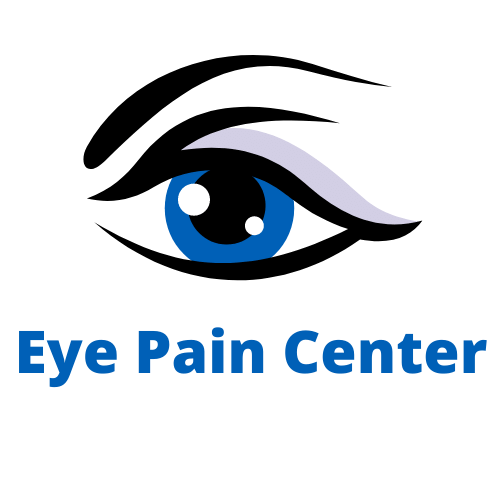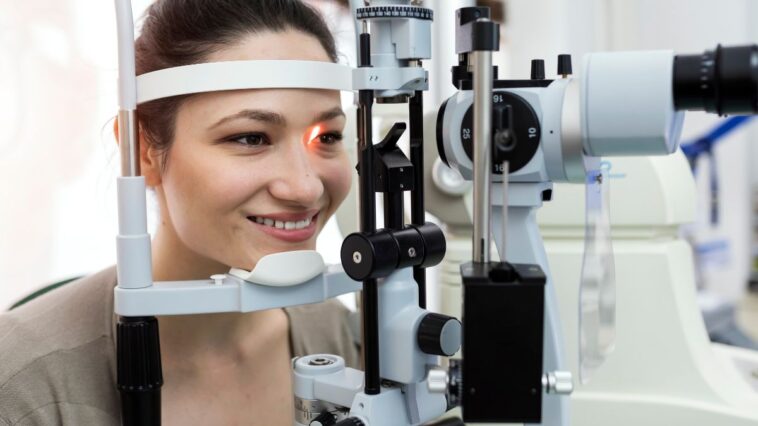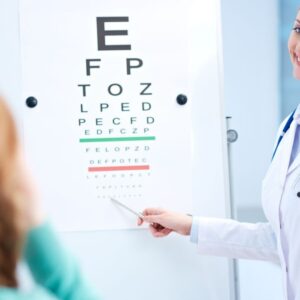If you’re experiencing issues with your eyesight or have an eye condition that needs to be addressed, the first step in finding the proper treatment is to locate a qualified ophthalmologist near you. In this step-by-step guide, we’ll take you through finding an ophthalmologist near me.
Determine Your Needs
Before you search for an ophthalmologist, it’s essential to identify your specific needs. This will help you narrow your search and find the right doctor. Some questions to consider when determining your needs include:
- Do you have a specific eye condition that needs to be addressed, such as cataracts, glaucoma, or macular degeneration?
- Are you experiencing symptoms such as blurry vision, eye pain, or sensitivity to light?
- Are you due for a routine eye exam to check your vision and eye health?
- Do you have a family history of eye conditions or diseases?
If you have a specific eye condition or are experiencing symptoms, you may need to find an ophthalmologist who specializes in treating that condition. On the other hand, if you’re looking for a routine eye exam, you may not need a specialist.
Check Their Specialization
If you have a specific eye condition, it’s crucial to find an ophthalmologist specializing in treating it. Some ophthalmologists specialize in specific areas of eye care, such as cataract surgery or glaucoma treatment. This will ensure that you receive the most effective treatment possible.
Research the Ophthalmologists
Once you have a list of potential ophthalmologists, it’s essential to do some research to ensure they are qualified and meet your needs. Here are some things to look for when researching ophthalmologists:
- Board certification: Look for ophthalmologists board-certified by the American Board of Ophthalmology. This indicates that they have completed rigorous training and passed a comprehensive exam in their field.
- Experience: Check the ophthalmologist’s experience and training to ensure they have the skills and knowledge necessary to provide high-quality care.
- Hospital affiliations: Check if the ophthalmologist has privileges at a local hospital or surgery center. This can be important if you need surgery or more advanced care.
Get Referrals
Getting referrals from friends, family, or other healthcare providers can be a great way to find a qualified and trusted ophthalmologist. Here are some tips for getting referrals:
- Ask your primary care doctor: Your primary care doctor can often provide recommendations for ophthalmologists in your area who are skilled and trustworthy.
- Ask friends and family: If you know someone who has received eye care in the past, ask for their recommendations. This can be especially helpful if they have a similar eye condition or situation as you.
- Check online reviews: Online reviews can provide valuable insights into the quality of care provided by different ophthalmologists. Check websites such as Google, Yelp, and Healthgrades to see what patients say about their experiences.
- Check with professional organizations: Organizations such as the American Academy of Ophthalmology and the American Society of Cataract and Refractive Surgery maintain directories of qualified ophthalmologists in your area.
Read Reviews
Reading reviews can be an essential part of the research process when trying to find an ophthalmologist. Reviews can provide valuable insights into the quality of care the ophthalmologist provides and other patients’ experiences. Here are some tips for reading reviews:
- Check multiple sources: Look for reviews on multiple platforms such as Google, Yelp, Healthgrades, and the ophthalmologist’s website. This can give you a complete picture of the ophthalmologist’s reputation.
- Consider the overall trend: Look for the overall trend of reviews rather than focusing on just one or two outliers. If most of the reviews are positive, this is a good sign. However, if most reviews are negative, it may be a red flag.
- Read both positive and negative reviews: Read both positive and negative reviews to get a balanced perspective. Look for common themes among the reviews to better understand the ophthalmologist’s strengths and weaknesses.
- Consider the date of the review: Consider the date, as experiences and opinions can change over time. Recent reviews may be more relevant than older ones.
Check Their Technology
When searching for an ophthalmologist, it’s essential to consider the technology they use. Advanced technology often leads to better diagnoses, more accurate treatments, and more comfortable procedures. Here are some things to keep in mind when checking an ophthalmologist’s technology:
- Research the technology: Before scheduling a consultation, research the ophthalmologist’s technology. Look for information about the technology online, including its benefits and drawbacks.
- Ask about technology during the consultation: During your consultation, ask the ophthalmologist about the technology they use. Ask how it works, how it differs from other technologies, and how it can benefit your specific condition.
- Look for technology that meets your needs: Depending on your specific condition, you may need different types of technology. For example, if you have cataracts, look for an ophthalmologist who uses laser technology for cataract surgery.
- Consider the ophthalmologist’s experience with the technology: It’s essential to consider their experience with the technology they use. An experienced ophthalmologist who is comfortable with a particular technology can provide better outcomes than a less experienced one.
- Evaluate the quality of the technology: Consider the quality of the ophthalmologist’s technology. Is it up-to-date and well-maintained? High-quality technology may lead to better outcomes and a more comfortable experience.
Check Your Insurance
If you have health insurance, you must check your plan to see which ophthalmologists are in-network. This will help you save money on your treatment and ensure access to the best care possible. Here are some steps to follow when checking your insurance:
- Look up your insurance plan: Find out which insurance company provides your health coverage, and look up your specific plan to understand your coverage details. This information can typically be found on your insurance company’s website or by calling the customer service number on the back of your insurance card.
- Check the provider directory: Most insurance companies maintain a provider directory that lists doctors and other healthcare providers participating in their network. Check the provider directory to find ophthalmologists in your area who are in-network.
- Understand your coverage: Once you’ve identified in-network ophthalmologists, it’s essential to understand your coverage details. This may include things like co-pays, deductibles, and other out-of-pocket expenses. Be sure to ask your insurance company if you have any questions about your coverage.
- Consider out-of-network options: If you can’t find an in-network ophthalmologist who meets your needs, you may need to consider out-of-network options. However, remember that out-of-network care may be more expensive, and you may be responsible for a more significant portion.
Consider Accessibility
When choosing an ophthalmologist, it’s essential to consider their location and accessibility. Make sure the doctor’s office is conveniently located and easily accessible by public transportation or car. You should also consider their availability and hours of operation to ensure you can schedule appointments conveniently.
Trust Your Gut
When choosing a healthcare provider, it’s essential to trust your instincts. Even if an ophthalmologist has all the right qualifications and experience, there are better fits if you feel comfortable with them.
During your consultation, pay attention to how the doctor makes you feel. Are they listening to your concerns and answering your questions? Do they seem rushed or dismissive? Are they taking the time to understand your specific needs fully?
A good ophthalmologist should be friendly, compassionate, and approachable. They should be able to explain complex medical concepts in a way that’s easy to understand and should make you feel at ease throughout the treatment process. It’s also important to pay attention to the doctor’s bedside manner.
Schedule a Consultation
Scheduling a consultation with an ophthalmologist is essential in finding the right doctor for your needs. During the consultation, you can ask questions, discuss your concerns, and get a sense of the ophthalmologist’s communication style and bedside manner. Here are some things to keep in mind when scheduling a consultation:
- Prepare questions: Before the consultation, prepare a list of questions for the ophthalmologist. These may include questions about their experience, their approach to treatment, and their recommendations for your specific condition.
- Bring medical records: If you have any relevant medical records, bring them to the consultation. This can help the ophthalmologist understand your medical history and make more informed recommendations.
- Be open and honest: During the consultation, be open and honest about your concerns and symptoms. This can help the ophthalmologist make a more accurate diagnosis and provide more effective treatment.
- Evaluate communication style: Pay attention to the ophthalmologist’s communication style and bedside manner during the consultation. Do they explain things clearly and in terms you can understand? Do they take the time to listen to your concerns?
- Consider comfort level: Consider your comfort level with the ophthalmologist. Do you feel comfortable asking questions and expressing your concerns? Do you feel like the ophthalmologist is taking your concerns seriously?
Conclusion
Finding the right ophthalmologist near me can be critical in maintaining eye health. By following these steps, you can increase your chances of finding an experienced, knowledgeable ophthalmologist who can provide the care you need.
Remember to research, read reviews, and schedule a consultation to understand the ophthalmologist’s communication style and expertise. Additionally, consider the ophthalmologist’s technology and evaluate its quality to ensure you receive the best care.
With these steps in mind, you can find an ophthalmologist suitable for you and take an essential step towards maintaining your eye health.






